第20章 III(7)
You can play checkers with a little community of meek, like-minded people. But when it comes to the handling of a great state, you will find that nature has emptied a box of chessmen before you, and you must play with them so as to give each its proper move, or sweep them off the board, and come back to the homely game such as I used to see played with beans and kernels of corn on squares marked upon the back of the kitchen bellows.
It was curious to see how differently Number Five's narrative was received by the different listeners in our circle. Number Five herself said she supposed she ought to be ashamed of its absurdities, but she did not know that it was much sillier than dreams often are, and she thought it might amuse the company. She was herself always interested by these ideal pictures of society. But it seemed to her that life must be dull in any of them, and with that idea in her head her dreaming fancy had drawn these pictures.
The Professor was interested in her conception of the existence of the Lunites without waste, and the death in life of the nitrogen-breathing Saturnians. Dream-chemistry was a new subject to him.
Perhaps Number Five would give him some lessons in it.
At this she smiled, and said she was afraid she could not teach him anything, but if he would answer a few questions in matter-of-fact chemistry which had puzzled her she would be vastly obliged to him.
"You must come to my laboratory," said the Professor.
"I will come to-morrow," said Number Five.
Oh, yes! Much laboratory work they will do! Play of mutual affinities. Amalgamates. No freezing mixtures, I'll warrant Why shouldn't we get a romance out of all this, hey ?
But Number Five looks as innocent as a lamb, and as brave as a lion.
She does not care a copper for the looks that are going round The Teacups.
Our Doctor was curious about those cases of anchylosis, as he called it, of the lower jaw. He thought it a quite possible occurrence.
Both the young girls thought the dream gave a very hard view of the optimists, who look forward to a reorganization of society which shall rid mankind of the terrible evils of over-crowding and competition.
Number Seven was quite excited about the matter. He had himself drawn up a plan for a new social arrangement. He had shown it to the legal gentleman who has lately joined us. This gentleman thought it well-intended, but that it would take one constable to every three inhabitants to enforce its provisions.
I said the dream could do no harm; it was too outrageously improbable to come home to anybody's feelings. Dreams were like broken mosaics,--the separated stones might here and there make parts of pictures. If one found a caricature of himself made out of the pieces which had accidentally come together, he would smile at it, knowing that it was an accidental effect with no malice in it. If any of you really believe in a working Utopia, why not join the Shakers, and convert the world to this mode of life? Celibacy alone would cure a great many of the evils you complain of.
I thought this suggestion seemed to act rather unfavorably upon the ladies of our circle. The two Annexes looked inquiringly at each other. Number Five looked smilingly at them. She evidently thought it was time to change the subject of conversation, for she turned to me and said, "You promised to read us the poem you read before your old classmates the other evening."
I will fulfill my promise, I said. We felt that this might probably be our last meeting as a Class. The personal reference is to our greatly beloved and honored classmate, James Freeman Clarke.
AFTER THE CURFEW.
The Play is over. While the light Yet lingers in the darkening hall, I come to say a last Good-night Before the final Exeunt all.
We gathered once, a joyous throng:
The jovial toasts went gayly round;
With jest, and laugh, and shout, and song we made the floors and walls resound.
We come with feeble steps and slow, A little band of four or five, Left from the wrecks of long ago, Still pleased to find ourselves alive.
Alive! How living, too, are they whose memories it is ours to share!
Spread the long table's full array, There sits a ghost in every chair!
One breathing form no more, alas!
Amid our slender group we see;
With him we still remained "The Class," without his presence what are we?
The hand we ever loved to clasp, That tireless hand which knew no rest, Loosed from affection's clinging grasp, Lies nerveless on the peaceful breast.
The beaming eye, the cheering voice, That lent to life a generous glow, whose every meaning said "Rejoice," we see, we hear, no more below.
The air seems darkened by his loss, Earth's shadowed features look less fair, And heavier weighs the daily cross His willing shoulders helped as bear.
Why mourn that we, the favored few Whom grasping Time so long has spared Life's sweet illusions to pursue, The common lot of age have shared?
In every pulse of Friendship's heart There breeds unfelt a throb of pain, One hour must rend its links apart, Though years on years have forged the chain.
So ends "The Boys,"--a lifelong play.
We too must hear the Prompter's call To fairer scenes and brighter day Farewell! I let the curtain fall.